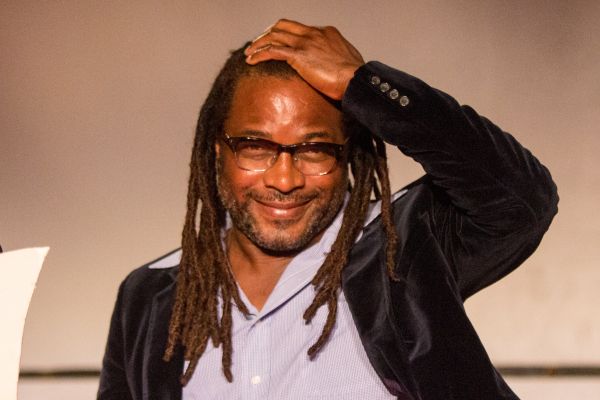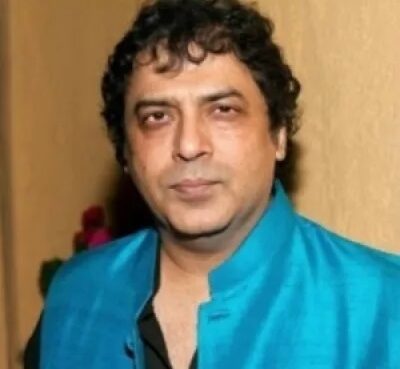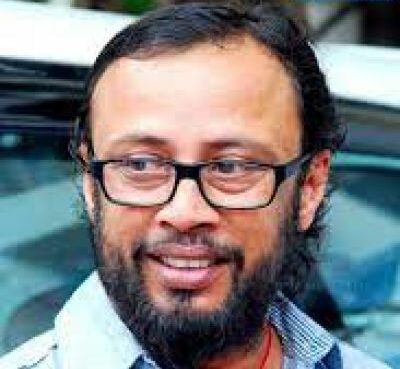The Canadian premiere of Biyi Bandele’s film, which was written and directed, took place just weeks after his passing and is honored by Nigerian author Molara Wood.
Death and the King’s Horseman, a drama by Nobel laureate Wole Soyinka, is the subject of Bandele’s last movie.
It examines actual events that occurred in the West African Oyo Kingdom in the 1940s, where tradition mandated that the king’s horseman commit ceremonial suicide and join the Alaafin (ruler of Oyo) in the afterlife.
Tragically, Bandele passed away before maybe his most successful movie, which had its world premiere at the Toronto International Film Festival (TIFF) in September, a month after the director’s passing at the age of just 54. On Friday, he was laid to rest in Lagos, the capital of Nigeria.
Temi Bandele, the director’s daughter, attended the melancholy film premiere in the Canadian city. Variety magazine called the movie “a passion endeavor” for the director.
TIFF’s CEO Cameron Bailey paid tribute on Twitter, writing: “Biyi Bandele was creating something so unique in world cinema: big-budget adaptations of African literature intended for the whole globe.”
Bandele was a multifaceted artist who resided in London and made a big contribution to the UK literary scene as well as the Nigerian film industry during the past ten years.
He carved out his way for many years in a career characterized by creative virtuosity and innovation.
Bandele, a multi-talented artist who has achieved success as a playwright, novelist, screenwriter, photographer, and director, declared, “I am first and foremost a writer.”
He co-directed the Netflix original limited series Blood Sisters, which premiered on August 7; at the time of his passing in Lagos, Nigeria, he was also working on a new book.
His daughter Temi shared the sad news of his departure on Facebook, calling it “unexpected” and praising her father for being “a storyteller to his bones, with an unblinking viewpoint, singular voice, and wisdom, which spoke boldly through all of his creations.”
The revelation shocked London’s literary elite as well as the African writing community.
As the recipient of the International Student Playscript Competition, Bandele arrived in London in 1990. At the time, he was a 22-year-old student at Nigeria’s Obafemi Awolowo University in Ile-Ife.
Richard Ali, a Nigerian author, was one of 100 African writers who paid tribute to Bandele in the online journal Brittle Paper. Ali praised Bandele’s best-known book, Burma Boy, calling it “one of the finest novels about WW2 that shows the peculiar experience of [African] soldiers” and called it “one of the finest novels about the war.”
Winner of the Booker Prize, Bernardine Evaristo, posted the following on Instagram: “In both the UK and Nigeria, he played a significant role in the arts community. His prolific, extraordinarily talented, and courageous talents have always earned me a lot of admiration.”
Jessica Craig, the representative for Bandele, recalls her first experience with Burma Boy: “I was attracted to the historical significance and authenticity, having no prior knowledge of Nigerian soldiers fighting for the British army in WWII.”
Why “is not cherished as a masterpiece of British and African literature,” she questioned. The novel was the first to examine the role of African soldiers in the Burma Campaign, which saw Allied forces beat Japanese forces, and was based on Bandele’s father’s military experience.
Bandele was an early forerunner to the nation’s present literary luminaries and was a deserving successor to the great Nigerian playwrights, such as Soyinka and Femi Osofisan.
He served as a link between different literary eras, African and Black British writing, as well as Nigerian writing.
The author, Biyi Bandele-Thomas, was born in 1967 in Kafanchan, a railroad town in Nigeria’s Kaduna state that sounds like something out of a fairy tale, and is as fascinating as any character he has ever written.
He stated of his birthplace, “I left when I was about 15 yet it’s defined every single part of my life.
His mother would tell him tales of gods and spirits as he was growing up, and these mystical elements would eventually be present in his writing.
When he and his father went to the neighborhood library, he was captivated by a book about bicycles because they were the most popular form of transportation in Kafanchan at the time.
A voracious reader as a child, Bandele decided to become a storyteller at the age of seven.
At the age of twelve, his first short tale was printed in a local newspaper. When he was 14 years old, he completed the first manuscript of The Man Who Came in From the Back of Beyond, which later became his debut book. After winning the playscript contest for Rain, he brought the manuscript with him to Britain.
By the end of the 1990s, he had written two more novels and changed his name to Biyi Bandele.
About a dozen plays, such as Brixton Stories, Oronooko, and Marching for Faust, were written by him.
He collaborated with the Bush Theatre, the Talawa Theatre Company, and the Royal Shakespeare Company for ten years.
Things Fall Apart, his stage adaptation of Chinua Achebe’s novel, made its Royal Court Theatre debut in June 1997.
The first screenplay written by Biyi Bandele, Not Even God is wise enough, about a Nigerian living in London, was directed by Danny Boyle.
He lived in Brixton, a neighborhood in south London, and The Street, his 1999 book, is set there. He was an insightful writer who captured the Black experience in Britain.
With Boyle’s support, Bandele pursued a career in cinema, adapting and helming Thandiwe Newton, Chiwetel Ejiofor, and Anika Noni Rose in Chimamanda Ngozi Adichie’s Half of a Yellow Sun.
Despite many obstacles, the film, which was shot on location in Nigeria, was successful because of the director’s perseverance.
Because of Bandele’s audacious choice to use the original Yoruba of the historical occurrence represented, the new Soyinka adaption is noteworthy. It is the first Yoruba-language feature that TIFF has ever produced.
A noteworthy aspect of Bandele’s Kafanchan youth was a pub owned by his family, where he got a close-up look at colorful, undesirable people like pickpockets and sex workers.
In 1998, he told the BBC,
“The most essential lesson I learned was never to generalize about individuals so that whether you see prostitutes in my work or thieves, they are first and foremost human before they are a type.”
The aim “to have regular people change their life” was at the heart of his creative endeavors.
It’s understandable why his images of common people on Lagos Island have garnered praise for their friendliness and the respectful gaze of his camera.
Before Biyi Bandele passed away, publisher Hamish Hamilton acquired his unfinished book Yoruba Boy Running, which is based on the life of Samuel Ajayi Crowther, the first African Anglican bishop of West Africa.
The book should serve as an appropriate eulogy for Biyi Bandele’s singular skill, coupled with his greater body of work.
Also Read: Family Life and Hefty Net Worth Of Bumper Robinson




